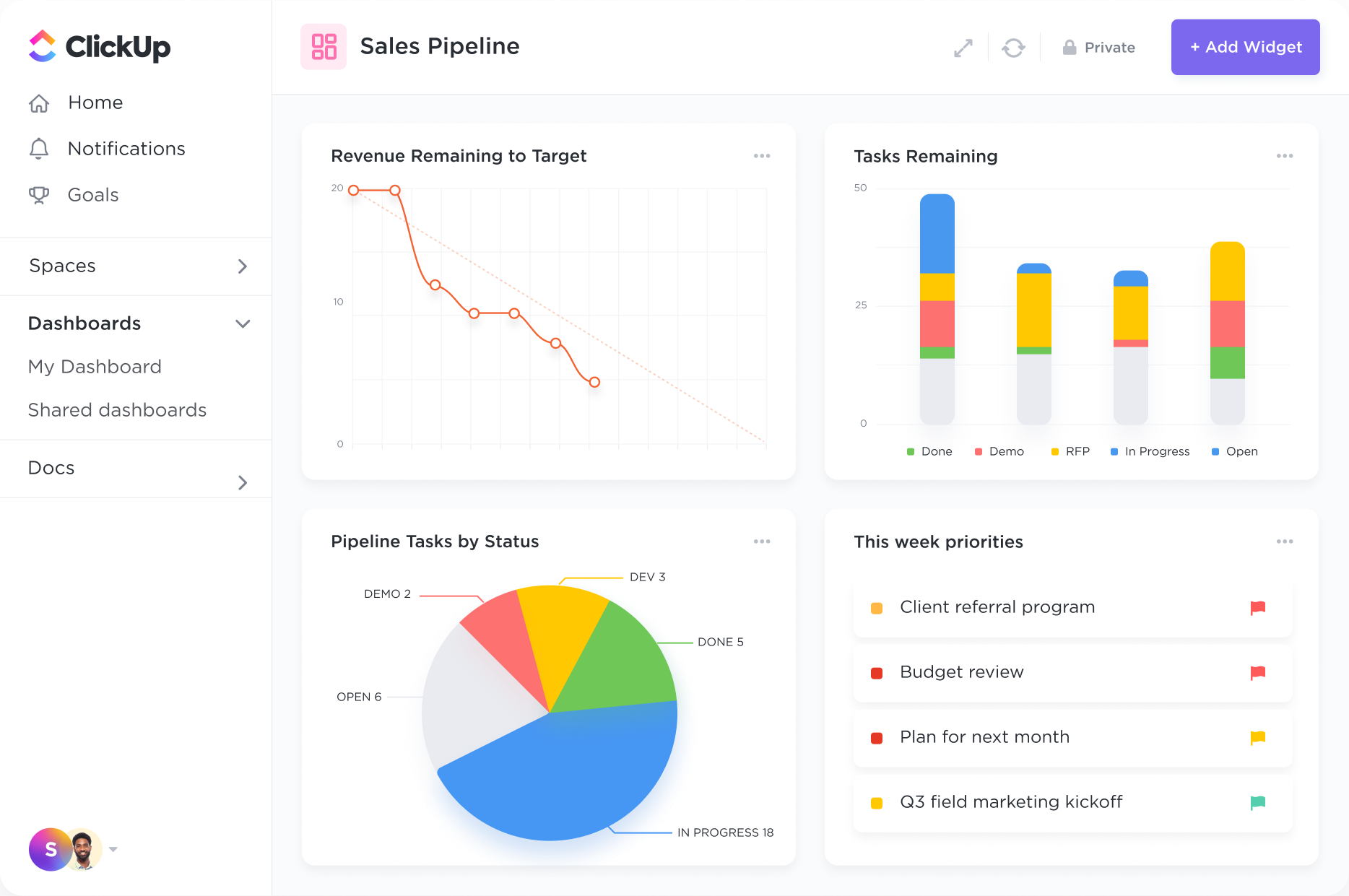Build the perfect customer database.
Create your ideal system to store and analyze contacts, customers, and deals. Add links between tasks, documents, and more to easily track all your related work.

Optimize your team's efficiency with ClickUp's customizable CRM system designed specifically for Operations Teams. Streamline your workflow, track key metrics, and collaborate seamlessly all in one place. Experience the power of ClickUp for your team and take your operations to the next level.
Free forever.
No credit card.
Trusted by the world’s leading businesses
Create your ideal system to store and analyze contacts, customers, and deals. Add links between tasks, documents, and more to easily track all your related work.

Create high-level views to monitor customer lifetime value, average deal sizes, and more. ClickUp's 50+ Dashboard widgets make it easy to visualize all of your customer data in one place.

CRM software helps streamline operations by centralizing customer information, automating repetitive tasks, improving communication among team members, enhancing customer service, and providing valuable insights for better decision-making.
Key features and benefits of using CRM software for operations include efficient task management, streamlined communication, improved customer interactions, enhanced data organization, and real-time reporting for better decision-making and resource allocation.
Yes, CRM software can integrate with various tools and systems used for operations, streamlining processes, enhancing data visibility, and improving overall efficiency and collaboration within the organization.